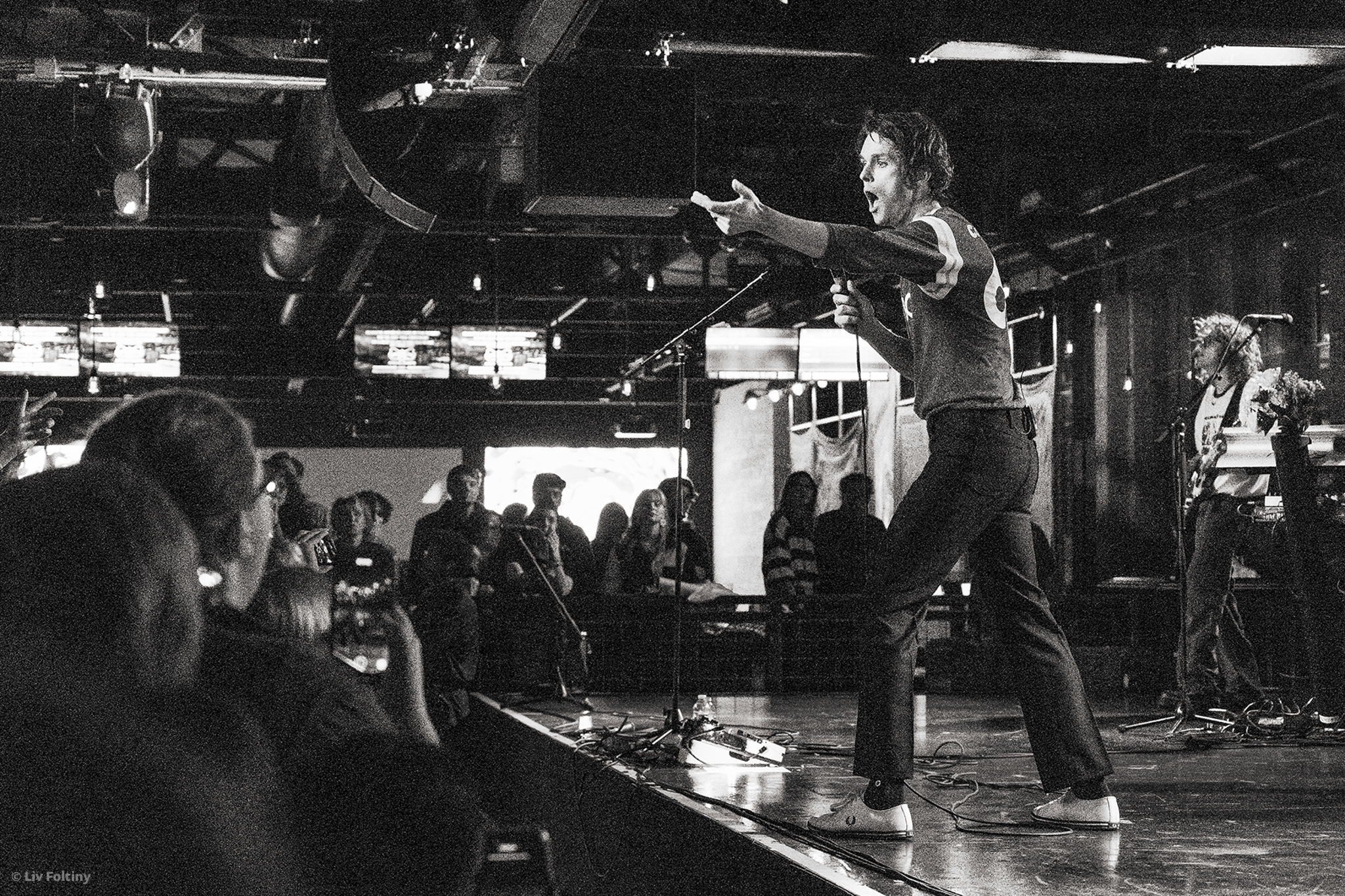Artist: Iggy Pop
Album: The Idiot
Year: 1977
by Joe Jamnitzky
Let’s face it, we all know who Iggy Pop is. The man is pretty much a legend at this point, in big part due to his early onstage antics with The Stooges, one of the earliest true punk bands of their time. By the mid-70’s, though, he was basically seen as washed up, a spent talent burned out by a constant drug addiction. Then help came along the form of David Bowie.
Bowie and Iggy had been friends since the early 70’s, Bowie even having produced the now classic Stooges’ album Raw Power. However, much like Iggy, Bowie was completely messed up by drugs and drink in the mid-70’s (though he somehow was still able to function musically). The idea was then born: they would both relocate themselves to Berlin, away from all the excesses that had taken over their lives, and try to get themselves cleaned up.
People often speak of Bowie’s “Berlin Trilogy” which consists of the albums Low, Heroes, and Lodger. What time tends to forget is that before these albums, the pair recorded Iggy Pop’s album The Idiot, a classic and extremely influential album that manages to also be forgotten by the general public.
Make no mistake here; this may be an Iggy album, but Bowie is felt throughout the entire thing. If anything, this album is seen as an aberration in Pop’s output, due to it not being an all out, in your face rock album. Instead, they’ve crafted an album that is dark, electronic, with early threads of industrial, and at some points much more disturbing than any rock could be.
In regards to its influences, consider the following:
-“Nightclubbing” has been covered by both Grace Jones and The Human League, while its kick drum sound and overall drum loop has been sampled by artists such as Nine Inch Nails, Oasis, and Sneaker Pimps.
– “Funtime” has been covered by The Cars, Peter Murphy, R.E.M., Boy George, and Blondie.
– and probably the most noticeable aspect, David Bowie would go on to cover “China Girl” to worldwide success (though it could be argued that the original version here is superior, solely because the bleakness of the music here shows just how dark the song is lyrically, an aspect that is missing from the pop-friendly sheen put on Bowie’s version).
Now as I mentioned, Bowie is definitely noticeable through this album. His backing vocals are clear as day on songs such as “Nightclubbing”, “Funtime”, and “Dum Dum Boys” (a song written as a lament/tribute to Iggy’s old band, The Stooges). He also plays the lion’s share of the guitar parts, lead guitar included, showing that he could be decent at it when he tried, as well as showing off his saxophone skills on “Tiny Girls”, which contains probably his best recorded attempt at the instrument.
Overall, anybody expecting a typical Iggy-style rock out when first approaching this album will probably be taken aback by how bleak and nihilistic this truly is. It’s been said that this would make more sense as a Bowie album than a Pop album, but this does Iggy a great disservice; many of the lyrics and arrangements came from him, and if anything it showed that the man was nowhere near being a spent force; instead, it showed a man who had much more creativity to offer than the public may have wanted from him.
After all, when you follow your muse and don’t give the public what they want or expect, they tend to view you with disdain and just wish for more of what they know. By doing so, they miss out on gems such as this.
*writer’s note: in case anyone decides to point it out, I am fully aware that this was the album that was still playing when Ian Curtis of Joy Division was found after hanging himself. I purposely left it out of the article and placed it here at the end so as to not make the article itself to depressing, and only chose to add it here for completeness sake.







